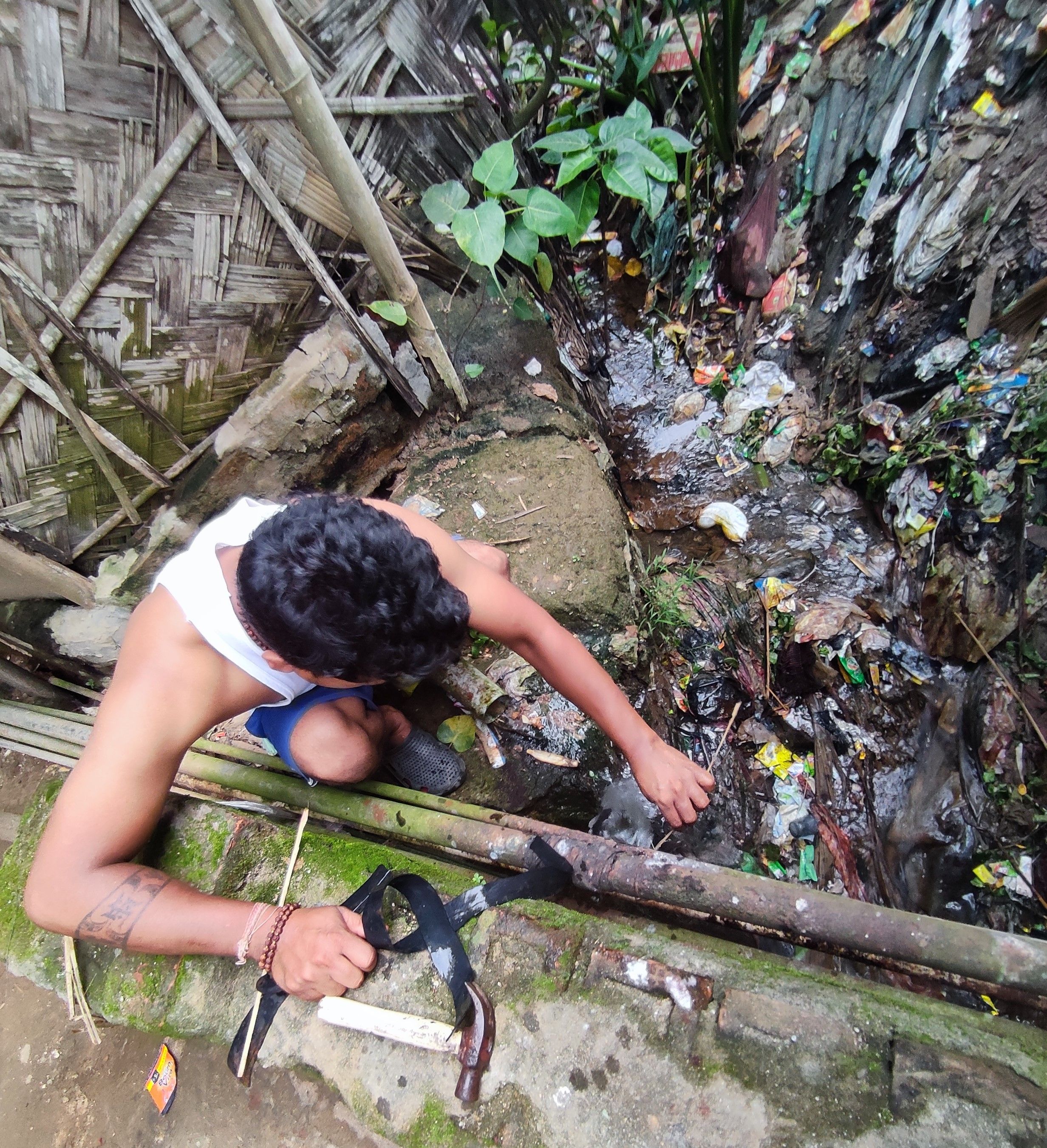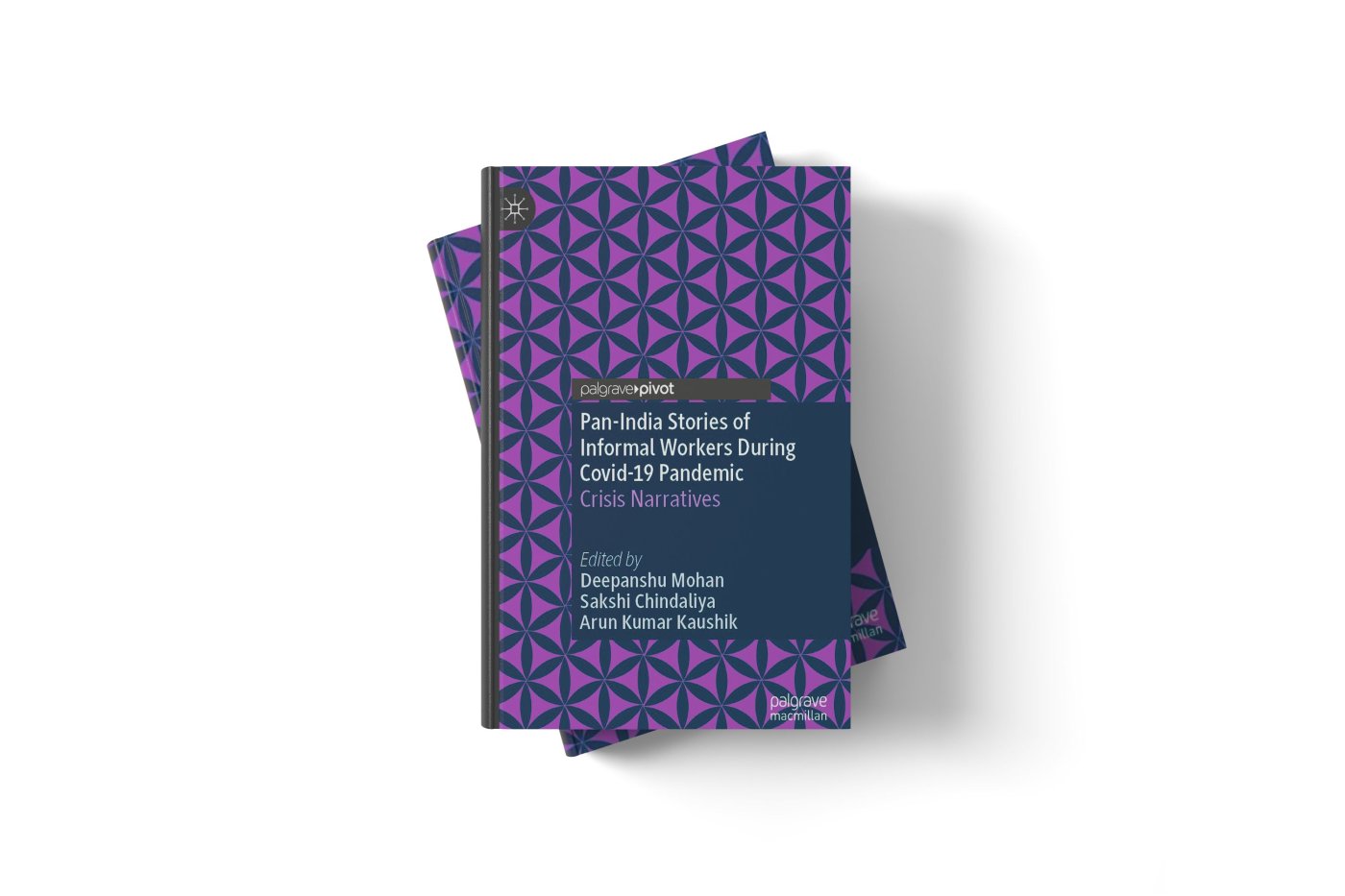Documenting three years of research during and after the Covid-19 pandemic, Pan-India Stories of Informal Workers During Covid-19 Pandemic is a compilation of papers by Centre for New Economics Studies at the Jindal School of Liberal Arts and Humanities, O P Jindal Global University.
The COVID-19 pandemic ripped through the world, exposing the fragility of our systems and prompting a harsh reevaluation of global alliances, power structures, and information dissemination (Laboul et al., 2021; Ferreira, 2021). In India, the crisis served as a stark spotlight, illuminating the deep-seated disparities that plague the nation, particularly for those who inhabit the fringes: the marginalized communities residing in informal spaces (Lutzoni, 2016).
The papers delve into the impact of the pandemic on vulnerable groups that make up the backbone of India's informal economy, through feminist ethnographic narratives. The chapters recount the struggles faced by informal workers across diverse geographies and demographics. In presenting a contemporary understanding of India’s labour market, the chapters probe the intersectional dimensions of caste, gender and class. There are first-person narratives as well as field researchers’ interactions with workers in a series of case studies.
The pandemic's effects provide the book an immediate context, but the chapters also dig deeper into the gendered dimensions of informal work in India, captures the voices of waste pickers, sanitation workers, fisherfolk and others, and explores the “othering” and systemic exclusions that they face.
This compilation foregrounds the urgency for a more nuanced understanding of challenges faced by workers in the informal economy, calling for inclusive and equitable reforms.
EXCERPT
The daily hustle-bustle of safai karamcharis in Guwahati is constant, come rain or shine. Despite being one of the primary stakeholders in stopping diseases from spreading in cities, sanitation workers do not experience job satisfaction and security. They are underpaid and overburdened under the garb of menial work. To their credit, the government provides marginally better working conditions and a base salary of Rs. 8000. Considering the worker’s tenure and their unabated service in the sanitation space, they may even get remuneration as high as Rs. 38,000 per month. However, more often than not, sanitation workers in Guwahati are hired on a contractual basis. Women, especially, are employed this way since they work primarily at the household level. Safai karamcharis receive monthly payments based on the successful completion of their tasks and are forced to report to work even during heavy floods.
In India, the formal workspace is complemented by steady pay, insurance benefits and several detailed perks. Meanwhile, work in the informal sector is characterized by inter-generational skills learnt outside of the formal training systems present in the country. Sanitation work can be classified as both without entirely belonging to either, qualifying it as a blindspot for employment and livelihood policies. Betwixt and between, they are exposed to unfair wage cuts and assigned duties outside the purview of their drafted contracts. One of the few designated roles in the space is that of wet and dry waste collection, assigned to men and women, respectively. However, “during the Monsoons, the distinction vanishes in flooded urban alleys”.
Unlike formal work centered in a singular space, the whole city becomes a site of intervention for the safai karamcharis. As drains span across the urban landscape, juggling between these “workplaces” while (trying to) combat intensive flooding carries its specific challenges. With the ever-rising water sitting still atop the roads, navigating through it knee-deep causes turbulence and impedes the completion of tasks. M.Basfore questioned, “There was so much water this time. How will I go to work?” Flooding reduces visibility and makes individuals more susceptible to getting hurt. D. Basfore, a sanitation worker from Colony 4, commented, “When it rains, my mother has difficulty going to work. She has to go despite the rainfall....There are landslides too.”
Adding to the mobility issues, the situation is made worse by a dearth of proper equipment that should be allocated to sanitation workers. The two coconut leaves brooms, the only equipment provided by the government, are notably insufficient to fulfill their daily duties. Several interviewees commented on having to locate junk and scraps to manufacture tools to aid the cleaning process. They are forced to create unreliable contraptions using a hammer on malleable tin sheets, which are then loosely attached to a stick—compelling safai karamcharis to test the odds with each use. Any additional costs for ensuring safety were made out of pocket. Despite the risks involved, sanitation workers pick up their make-shift toolkits to fulfill their job requirements. Even though the group is unionized at almost 90% across the country, the insufficient municipal budget stops them from receiving the much-needed protective equipment and health insurance.

Banished to the bottom of the barrel, they are expected to survive on the scraps left behind both in terms of available resources and policy-making. Especially during floods, the minimal access to resources prevents them from unclogging the drains and washing off the sludge, which is essential for reducing water levels. This leads to a vicious cycle for the safai karamcharis; their inability to clean worsens the flood levels, resulting in severe mobility issues in the community and leaving them to deal with the adverse effects of the calamity.
Amidst the exigent uncertainties, Basfores are forced to take up alternate tasks at their work and additional jobs on the side, to ensure a sufficient income stream. Often, they are asked to clean bathrooms or pick up additional garbage—roles not mentioned in their contract. Bi.Basfore commented,
After the 2008 bomb blast in Guwahati, I was called to clean up the area including the roads and removal of dead bodies with the promise that my job will be made permanent; but I was never offered a job. The same happened during Covid times, I was asked to clean the rooms and change diapers of the patients, they promised me a permanent job and money in exchange for the work but the job was not offered. Sometimes I look forward to the floods because at least I earn consistently then.
Even as other workplaces shut down under the emergency, none of the 32 respondents have had a day off amidst the life-threatening floods. Elaborating on the dire conditions, the respondents from Colony 3 Ar. and Su. Basfore stated that they would be “replaced very easily if they don’t go to work for even a day or refuse to do tasks apart from the contracted work. Our livelihood will be put to a stop.” Sundays mark their only “free” days, which they spend doing any and all odd jobs to not fall into a worse economic state. These appalling circumstances are echoed across roles in the sanitation workspace.
Living Through Floods: Social Conditions of Safai Karamcharis
Despite covering all bases, at the cost of overworking themselves, safai karamcharis are struggling to make ends meet. The average income in the sample was reported as Rs. 7,015.38, less than a third of the Guwahati city average salary of Rs. 25,833. This amount is insufficient to live in cities as the average cost of living in Guwahati was reported to be Rs. 16,042 for a family of two. The average family size recorded in the sanitation worker sample was approximately five. The income earned by safai karamcharis will be insufficient to sustain a family of two, let alone an average of five. Adding to the pressure of irregular salaries and frequent health shocks during floods, this amount is grossly insufficient even for the most senior sanitation workers. Thus, they borrow money to fulfill daily necessary requirements such as food, water, and electricity.
The lack of access to BPL cards forces sanitation folks to purchase staples such as rice and pulses at market prices, even during floods. Drinking water is sold at Rs. 25/liter and is limited to 10 liters per house-hold—the flood situation puts a stop to this entirely. The colony residents then depend on waste-filled drains for water. Electricity prices take up almost 1/3rd of their monthly income, amounting to a large sum (Rs. 1000–2000) of their undervalued salaries. Providing for the cost of essential goods on minimal to no savings poses unceasing challenges. Lack of reserve funds forces 78% of individuals to procure credit from formal and informal sources. This includes seeking loans from individuals/relatives (81.25%), banks (12.5%), and a combination of the two (6.25%). More often than not, safai karamcharis pay interest as high as 20%, which results in a debt trap. Minimal and unstable income streams prevent them from availing of low-interest loans from banks, even during the time of disasters.
In a related vein, unlike regular urban residents, sanitation workers bear additional costs on fixed assets, such as their homes. Owing to floods, roof leaks, and overflowing homes have been an annual occurrence over the past few decades. Yet, residents of the Harijan colonies have not been able to prepare for this due to deteriorating economic circumstances. This situation limits access to and from the colonies, trapping the residents to their locales.
The drinking water trucks have not come to this colony for the past few days, everyone is dependent on the school well. There are 200 or so families here, some with very young children. If an emergency occurs due to the floods and the rains or if my children fall sick, no ambulance can reach here, no one will think of us. If not us, I want someone to at least think of my children. Su. Basfore from Colony 3 elaborated.
Their hard work, throughout the year and amidst these surges, does not reap any benefits. Even though sanitation workers clean up after everyone, they do not have any security net to fall back on. The circumstances of safai karamcharis’ work, such as foul smells and its degrading nature, push them to consume alcohol. Unreliability of the quality of alcohol causes short-term illnesses, and prolonged intake leads to irreversible long-term effects. The widows interviewed as a part of this ethnographic study also attributed their spouse’s demise to habitual alcohol consumption.
(Excerpted with permission from Pan-India Stories of Informal Workers During Covid-19 Pandemic: Crisis Narratives, published by Palgrave Macmillan.)
Get exclusive access to new databases, expert analyses, weekly newsletters, book excerpts and new ideas on democracy, law and society in India. Subscribe to Article 14.

